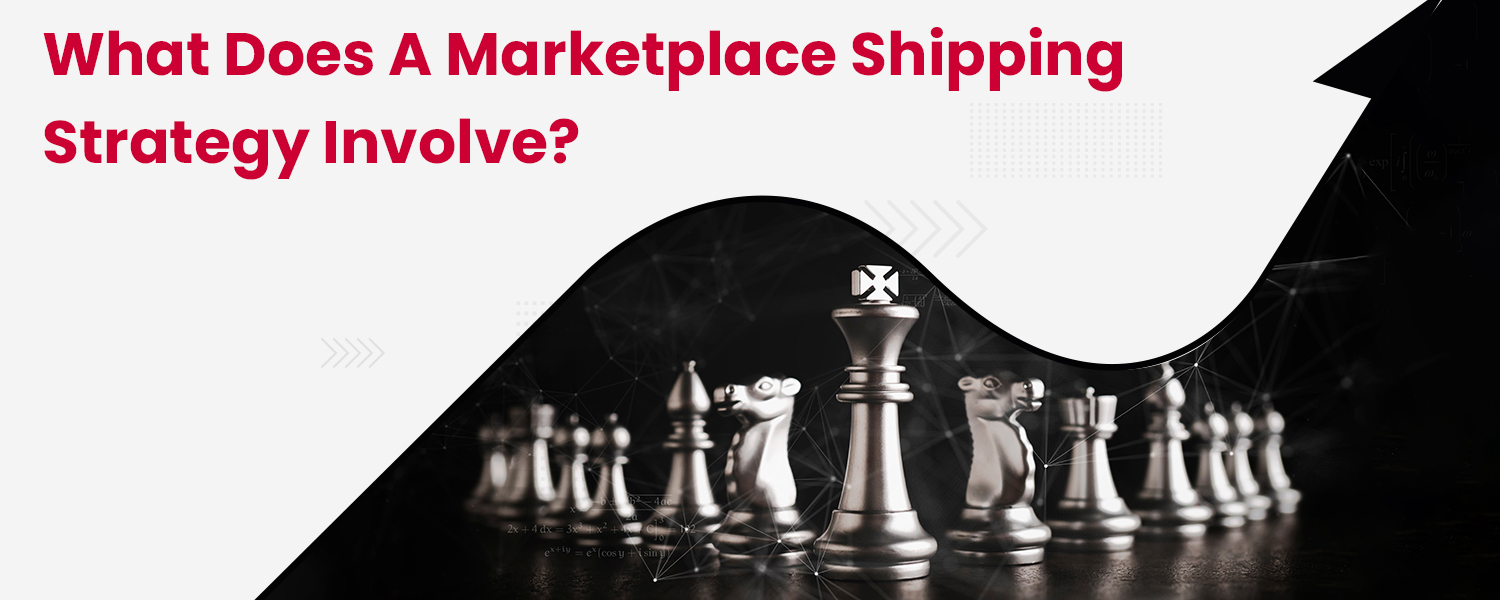The eCommerce industry in India has been progressing at a high pace for the past five years. Besides, the ever-growing competition keeps the online sellers on edge while planning a marketplace shipping strategy. A guide will be useful for Indian online sellers for making new strategies and improving their shipping services. Let’s get started!
A good and workable marketplace shipping strategy involves the following aspects:
- Consumer expectations
- Delivery options
- Delivery rates
- Fulfillment and shipping costs
- How to test and design shipping strategy
- Shipping elements
- Shipping integrations
- UX design tips
Consumer Expectations From Shipping
Shipping helps online sellers in building their empire in the e-commerce industry. In ancient times, merchants and traders would help the sellers in shipping products, making the business transactions workable. In this manner, the modern marketplaces improve retail performance, making shipping efficient.
Customer feedback also supports the above claims. Before understanding the consumer expectations, you should understand that most of them abandon their shopping carts because of the following:
- Cumbersome return policies
- High delivery costs
- Slow delivery speed
- Surprise fees, etc.
As per a study on consumer expectations, 30% same-day, 20% sub-two-hour, and 35% next-day delivery is the trend. The study also highlights how buyers drop marketplaces when online sellers have a fixed delivery system.
We understand that the shipping conundrum is challenging to understand. Consumers demand faster deliveries, making it expensive and tiresome for online sellers. On the other hand, since everything is uncontrollable alone, the sellers can attract buyers and add value. Therefore, a marketplace shipping strategy is essential for keeping the two-fold shipping equation satisfactory.
Marketplace Shipping Elements
Marketplaces handle maturity level, selling product types, user needs, and target geographic areas. The following aspects either are linkable to or form a small shipping process:
Logistics
Customer services, warehousing, seller curation, and order management should be streamlined in a good marketplace.
Order Management
Tracking, fulfilling, and processing orders using advanced CRM software.
Payment Systems
Payment gateways should be integrated into the marketplace with the shipping and order systems.
Fulfillment
The product shipping, labeling, and packaging after receiving orders should be fast-paced and efficient. In addition, short-term inventory and storage management will add more value to the fulfillment process.
Physical Shipping
The goods are transported from a fulfillment center or the seller to the end buyers. It creates new opportunities for marketplaces to enjoy competitive benefits and add user value without managing infrastructure costs.
Carriers and Couriers
Selecting the right shipping courier partner can positively impact reach, delivery speed, and cost. National Operators like DHL, NimbusPost, etc., offer options to API integrate marketplaces to procure last-mile and efficient product delivery.
Tracking
A marketplace should have a provision for users to track their orders. In addition, the online sellers should stay updated on the delivery status, such as shipping, no shipping, unable to deliver, and in transit.
Returns
Ease and smooth return policy bring loyal buyers. Besides, return policy on marketplaces is becoming more of an experience than possession with many services.
Customer Service
During the shipping process, a marketplace should resolve the customers’ queries without wasting their time. In addition, the problem-solving technique should be humble and satisfactory.
Warehousing
In the realm of giant marketplaces, product storage provision should be available for a longer time.
Marketplace Collection and Delivery Options
Collection and delivery options should be tested with an MVP. Some of the common options are:
- Expedited shipping
- Express shipping
- Freight shipping
- In-store collection
- International shipping
- Overnight shipping
- Same-day delivery
- Standard shipping
- Third-party location
- Two-day shipping
Marketplace Fulfillment and Shipping Costs
Online sellers or marketplaces bear certain costs to deliver products to buyers. Therefore, shipping costs and marketplace fulfillment strategies should be carefully made. If the strategies are not conceptualized ideally, the online sellers or marketplaces may spend 70% of their order value on product delivery or shipping.
Variables
Marketplaces or online sellers should consider the following variables to adjudge the package shipping cost:
- Carrier
- Destination
- Dimensions
- Value
- Weight
Handling Fees
Apart from product loading, packaging, and retrieving, nothing should be covered under these charges.
Packaging
It plays an immense role in branding. So, we suggest sustainable packaging to attract more buyers.
Labeling
It is required for the following information:
- Destination address
- Package weight
- Return address
- Shipping class
- Tracking number
Insurance
It protects online sellers or marketplaces from huge losses because of product damage and stolen/lost goods.
Marketplace Delivery Rates
Most time, the buyers are accountable for shipping charges that include VAT taxes, import duties, and carrier rates. The fee can be levied in the following ways:
Flat Rates:
- Suitable for uniform products
- Easy to use
Carrier Rates:
Real-time API-based carrier rates based on delivery preference, dimensions, and distance.
Free Shipping:
- Prevalent
- Sometimes, included in the product price
- The best method to decide a minimum threshold expenditure
Start with a new marketplace shipping strategy
It is not a play to create a sustainable marketplace shipping strategy. The pointers that we have listed above are not limited to those. Online sellers can perform further research to establish their customized and suitable marketplace shipping strategy.
Since an ideal logistics service provider can help in improving a brand’s shipping strategy, you can partner with Nimbuspost which brings 27+ courier partners onto a single platform. It not only offers tight integration with marketplaces like Amazon, but you can also use its services for your website built on Shopify, WooCommerce, Magento, Unicommerce, etc. for the smoothest shipping experience ever.




